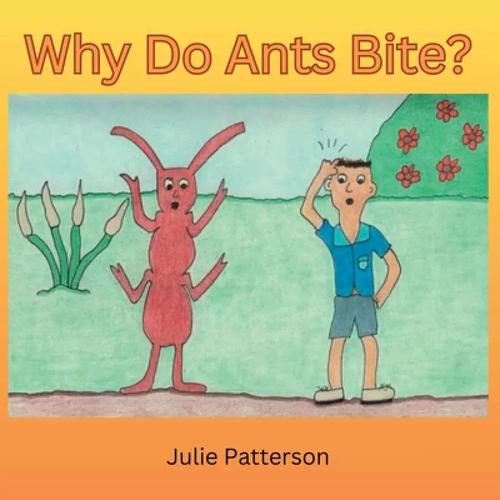
Do Ants Bite?
Have you ever wondered if ants have the ability to bite? This question often arises when encountering these tiny creatures in our homes or gardens. In this article, we will delve into the world of ants and explore whether they can bite, how they do it, and what it feels like when they do.
Understanding Ants
Before we can answer the question of whether ants bite, it’s important to understand these fascinating insects. Ants belong to the order Hymenoptera, which also includes bees and wasps. They are social insects that live in colonies and have a highly organized society.

Ants have a segmented body, with a head, thorax, and abdomen. Their heads are equipped with a pair of antennae, which they use to sense their environment. They have mandibles, which are strong jaws used for biting and chewing. Ants come in various sizes and colors, and there are over 12,000 species worldwide.
Can Ants Bite?
Yes, ants can bite. While not all ants have the same biting capabilities, most species are capable of biting. The bite of an ant is usually not harmful to humans, but it can be painful and may cause swelling or itching.
The bite of an ant is caused by the pressure exerted by its mandibles. When an ant bites, it uses its strong jaws to grip the skin and apply pressure. The pain from the bite is often described as a sharp, stinging sensation.
Why Do Ants Bite?
Ants bite for several reasons. One of the most common reasons is to defend themselves. When an ant feels threatened, it will bite to protect itself and its colony. Another reason ants bite is to communicate with each other. Biting can be a form of social interaction, used to establish dominance or to signal danger.

Ants may also bite to feed on the flesh of other insects. Some species of ants are known to prey on other insects, and they use their bites to kill and consume their prey.
How to Avoid Ant Bites
While ants can bite, there are ways to avoid them and minimize the risk of being bitten. Here are some tips:
-
Keep your home clean and free of food crumbs and spills. Ants are attracted to food, so eliminating their food source can help deter them.
-
Seal cracks and crevices in your home. Ants can enter through small openings, so it’s important to seal these gaps to prevent them from entering.
-
Use ant baits and traps. These products can be effective in controlling ant populations and reducing the risk of bites.
-
Be cautious when handling ants. If you encounter an ant, avoid squeezing it, as this can cause it to bite.
What to Do If You Are Bitten
If you are bitten by an ant, there are several steps you can take to alleviate the pain and reduce the risk of infection:
-
Clean the bite area with soap and water to remove any debris.
-
Apply a cold compress to reduce swelling and numb the area.
-
Take an over-the-counter pain reliever, such as ibuprofen or acetaminophen, to help manage pain.
-
Keep the bite area clean and dry to prevent infection.
Conclusion
Ants can bite, but their bites are usually not harmful to humans. Understanding the reasons behind ant bites and how to avoid them can help you minimize the risk of being bitten. By keeping your home clean and taking precautions, you can enjoy the beauty of ants without the worry of being bitten.
| Ant Species | Biting Ability | Pain Level |
|---|---|---|
| Fire Ant | High | High |
| Harvester Ant | High | High |
| Leafcutter Ant | Low | Low
Related Postsbullseye insect bite,Bullseye Insect Bite: A Detailed OverviewBullseye Insect Bite: A Detail… Like |





